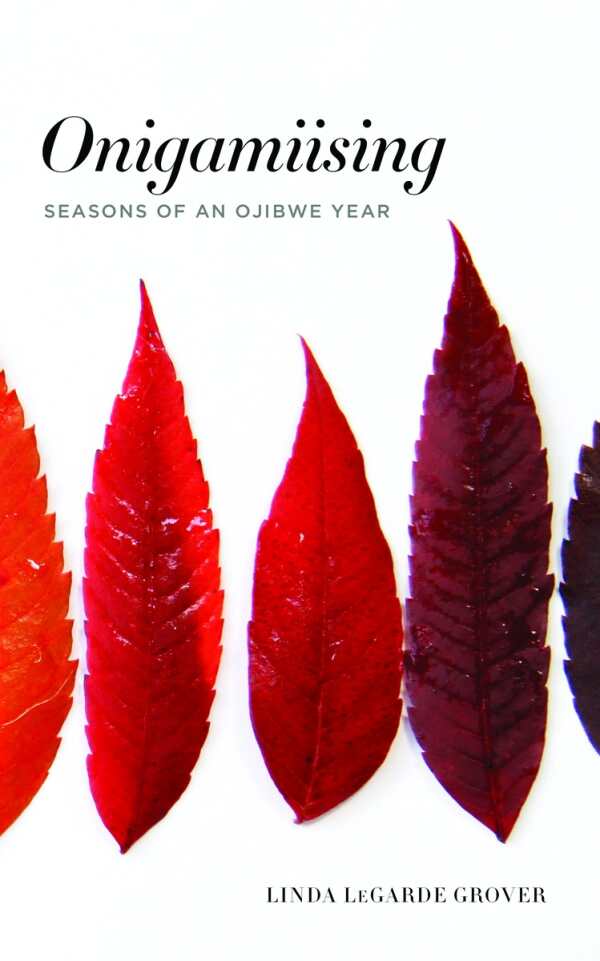Onigamiising
Seasons of an Ojibwe Year
Grover’s essays provide insight into Ojibwe life, even as it contends with the encroaching tendencies of surrounding cultures.
This collection of short essays offers wisdom, humor, and affection from an Ojibwe grandmother who is also a talented storyteller, a knowledgeable historian, and a thoughtful observer of the world.
Linda LeGarde Grover is a professor of American Indian Studies and an award-winning author, but the identity that she embraces and explores in these essays is that of a Nokomis (grandmother) to her family and a member of the Bois Forte Band of the Ojibwe.
Compiled from local newspaper writings, these essays offer a look at life as an Ojibwe in Onigamiising (Duluth). Their arrangement in seasonal groupings from Ziigwan (spring) to Biboon (winter) informs the collection, with Grover’s awareness of the inevitable passage of time and the seasonal changes that come with it.
Some essays are subtly humorous, like “The Mystery of Indian Corn,” which shares memories of Grover’s childhood confusion about the many commercial products that apply names like “Indian corn” to foodstuffs utterly foreign to her family and tribe. Others, like her discussions of actual traditional foods, are comfortably homey, while essays like “The Stone Tomahawk” offer sometimes surprising insights into the ways her family adapted to the majority culture that surrounds them.
Essays also address fraught questions, like “How Much Indian Are You?” The dark shadow of the United States’s treatment of Native Americans frequently intrudes on her thoughts about favorite topics, including education, family, and children.
Although Grover admires the teachers in the schools that her children and grandchildren attend, she also recalls petty prejudice from her own school days and the cruel policies of the past, such as in the boarding schools of the early twentieth century that removed native children from their families and sought to obliterate their knowledge of their culture.
Reading these essays is like quietly listening to a thoughtful elder telling tales, spinning stories, and subtly offering wise guidance to her descendants, as well as to anyone else fortunate enough to hear.
Reviewed by
Bradley A. Scott
Disclosure: This article is not an endorsement, but a review. The publisher of this book provided free copies of the book to have their book reviewed by a professional reviewer. No fee was paid by the publisher for this review. Foreword Reviews only recommends books that we love. Foreword Magazine, Inc. is disclosing this in accordance with the Federal Trade Commission’s 16 CFR, Part 255.

